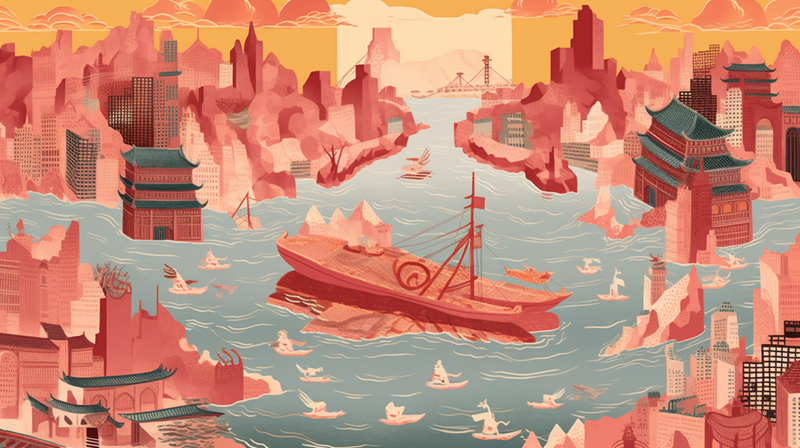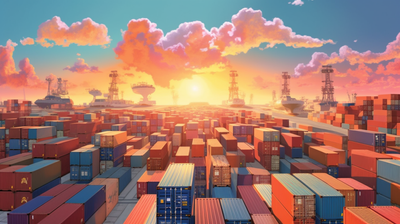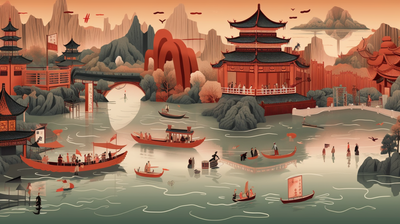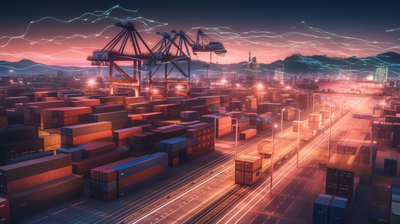Peter Zeihan's Analysis: Unraveling China's Global Role and the Path to Resilience
In this intricate tapestry of geopolitical discourse, we find ourselves entwined within the enigmatic complexities of China's global presence. As we delve into this subject matter, it becomes apparent that China is the world's largest importer, a position of paramount significance. It is within this context that we shall explore the potential consequences of transplanting the sanctions imposed upon Moscow onto Beijing, envisioning a scenario where deindustrialization and subsequent collapse unfold, accompanied by the ghastly spectre of a family perpetrating mass genocide, extinguishing the lives of 500 million individuals within a chillingly brief span of eighteen months. The mathematical calculations may elude us, yet it is evident that fear permeates the very core of this narrative, primarily induced by the boycotts that loom ominously over the Chinese regime.
The geopolitical arena has often witnessed the moralizing proclamations of Brussels, Washington, and Tokyo, dictating the boundaries of acceptable conduct to nations. Yet, when entities like Halliburton emerge as the arbiters of morality, an unparalleled disquietude grips our collective consciousness. China's economic model, intricately interwoven with foreign markets and technological access, stands poised on a precipice, vulnerable to removing these crucial pillars. Stripped of these foundations, China is empty of substance, teetering on the edge of an existential abyss.
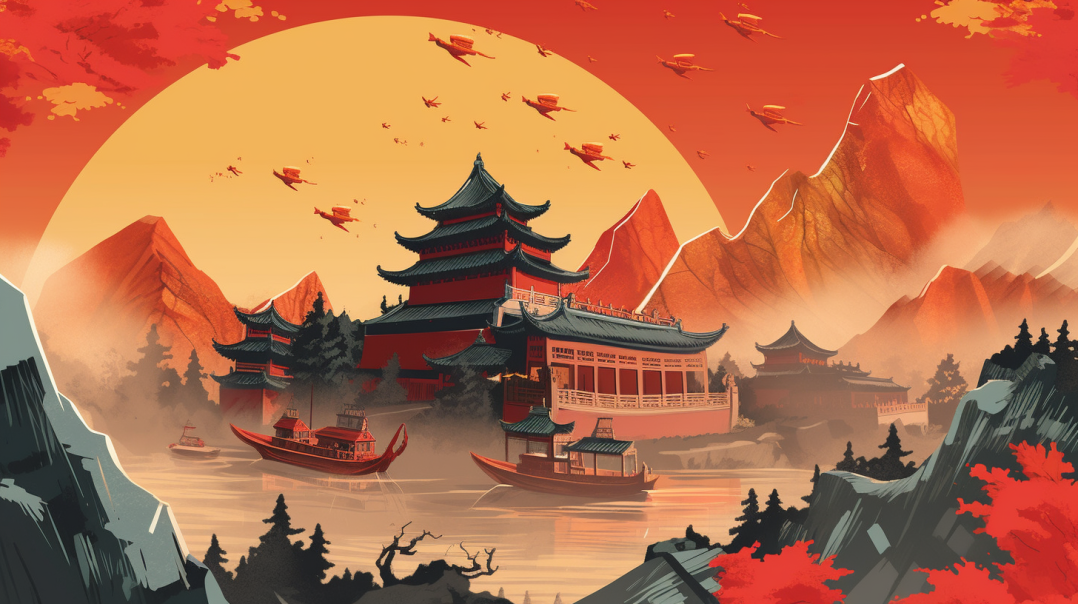
Henceforth, we discern that every assumption made by China in the preceding four decades has been rendered futile within the sheer expanse of eight months. In times of yore, the Chairman would gather the intellectual elite, their minds fueled by beer and pizza, and demand the formulation of a viable Plan B. Alas, the purges enacted within the Chinese system have annihilated this reservoir of intellect and adaptability, leaving an unfillable void. Consequently, the only plausible course of action seems to be the audacious decision to wage war, fully aware of its inevitable outcome—a resounding defeat that would unequivocally spell the end of China's strategic dominance. A naval battle awaits, echoes reverberating through the corridors of power as we discern the desperation underpinning this endeavour. The fundamental question that arises from this tumultuous landscape is the motive behind such a seemingly self-destructive course of action. Could China's leaders have relinquished all faith in their economic expansion, realizing that the propaganda propagated among their people holds no semblance of truth? Perhaps, within the confines of their strategic calculus, they find some merit in sacrificing 500 million lives to preserve their tenuous grip on power. Nevertheless, we must acknowledge that such a China, consumed by such callous machinations, holds little significance for the broader world. It is essential to recognize that this nation has, throughout history, endured multiple collapses, witnessed reckless policies, and ultimately succumbed to the throes of civilizational decay.
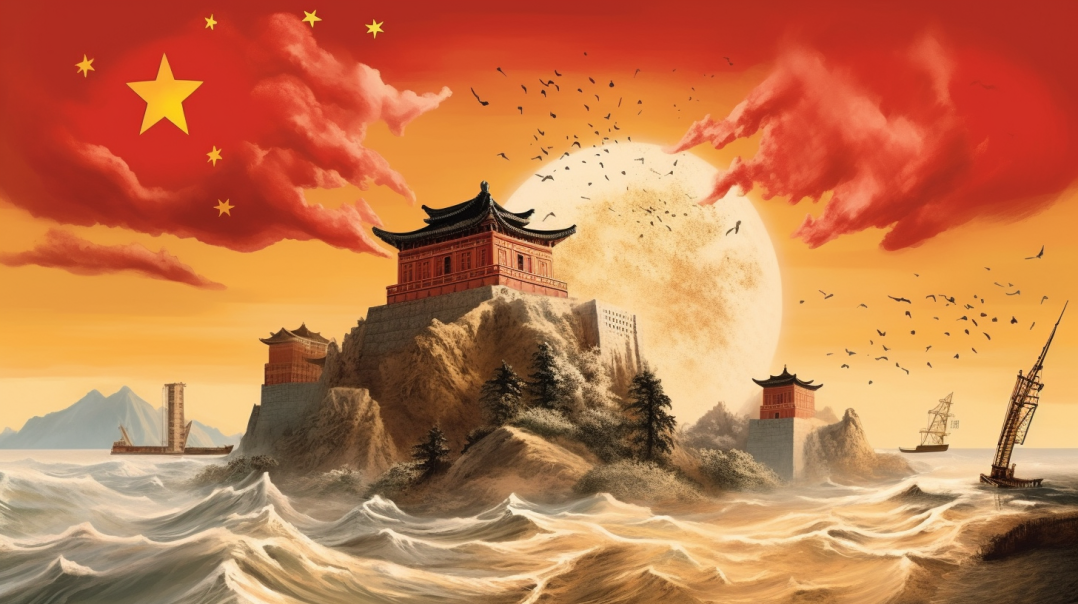
In its current state, the West stands in a state of dependency on China, its implications far-reaching and profound. Two specific domains bear the brunt of this reliance—the processing of essential materials, particularly metals, and the manufacturing realm, with electronics occupying a central position. Given the imperatives of the Green Revolution and the demands of large-scale construction, it would be remiss to trivialize the importance of these sectors. Lithium, a critical component of our endeavours to usher in an era of sustainable progress, and aluminum, indispensable to our construction endeavours, constitute the lifeblood of this interdependency. However, it is pertinent to note that the advantage we currently enjoy in materials processing stems from antiquated technologies from the bygone era of the 1910s and 1920s. Although not an insurmountable obstacle, expediting our journey toward self-sufficiency in this realm is crucial. The impending collapse of China would undoubtedly necessitate an adjustment period, the duration of which is contingent upon the celerity with which we embark upon this endeavour. We contend that sooner rather than later is the preferable course.
As we venture further into electronics manufacturing, we encounter a curious dichotomy between perception and reality within the United States. A closer examination of China's semiconductor industry, which serves as the bedrock for various facets of its manufacturing prowess, reveals a startling truth. The high-end chips, coveted components powering our computers and cell phones, are not indigenously produced; they are imported from Taiwan, Korea, the United States, and Japan. Similarly, the mid-grade chips employed in the automotive, freight, power management, and aerospace sectors, originating from Malaysia and Thailand, bear no Chinese origin. It is in low-end chips, catering to more straightforward applications like watches and consumer electronics, that China indeed wields its manufacturing prowess. However, a closer examination unravels the truth—China cannot manufacture the machinery instrumental in producing these chips. Instead, machinery, tools, software, and the indispensable human element rely on imports. It is essential to underscore the significant impact of a recent decision by President Biden, which effectively eradicated the Chinese tech industry by prohibiting the importance of high and medium-grade chips, equipment, tools, and software, reserved solely for low-end chip production.
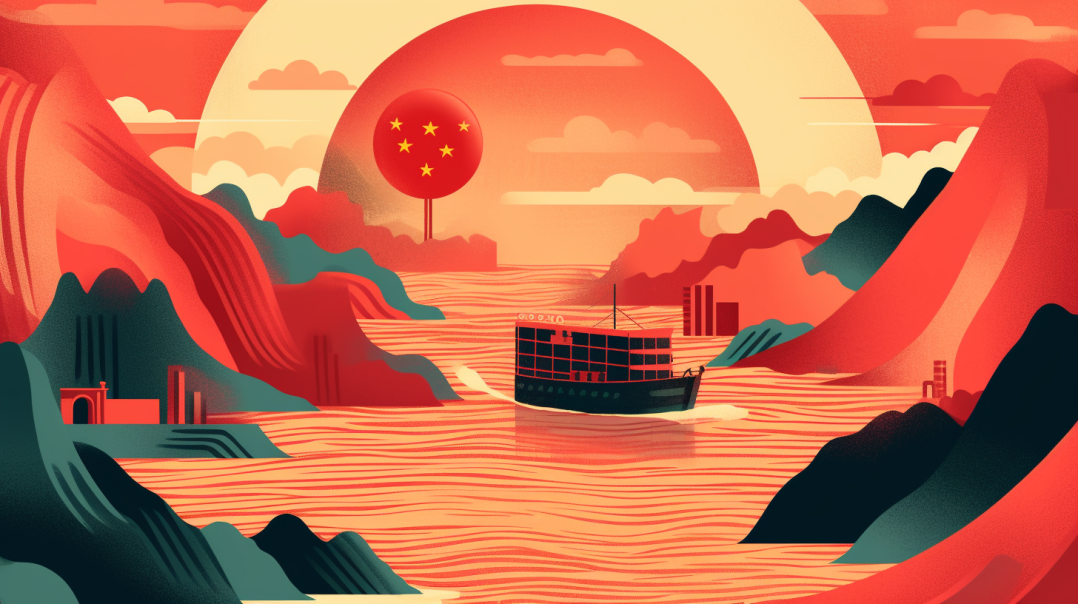
Consequently, Americans in this industry were compelled to choose between citizenship and livelihoods. As a result, the sector witnessed an exodus of American citizens within twenty-four hours, leaving China in disarray. Reduced to very assembly, their previous prowess was rendered irrelevant.
Daniel's Take:
- China's status as the largest importer carries substantial implications for global dynamics.
- Transplanting sanctions from Moscow to Beijing could result in deindustrialization and potential collapse, with dire consequences.
- China's economic model relies heavily on foreign markets and technology access, making it vulnerable to disruptions.
- Assumptions made by China over the past four decades have been shattered, leaving little capacity for adaptation.
- The possibility of China resorting to war in the face of economic decline raises troubling questions.
- The West's dependence on China, particularly in materials processing and manufacturing, necessitates urgent reevaluation.
- Expedited efforts to achieve self-sufficiency and reduce reliance on China are vital.
- While influential in low-end chip production, China's semiconductor industry depends on machinery, tools, and software imports.
- Recent actions by President Biden have dealt a severe blow to the Chinese tech industry.
- China's diminished manufacturing capacity highlights the fragility of its position.
Cameron's Take:
The infamous decoupling from China by the West in the post-Pandemic environment is well under way. However, it should be noted that the person who really pioneered a change in global trade and China was President Trump. By renegotiating with both NAFTA and by passing tariffs on Chinese goods, Trump set up the conditions for getting manufacturing out of China and back to North America. President Biden, being pro-union and pro-made-in-America, has not removed a single tariff from his predecessor.
The reality is that China is in trouble. They have been fudging their growth numbers for years. There is a great documentary called "The China Hustle" that is worth watching to understand much of the rot at the core of the Chinese system. Their system of centrally-managed capitalism has raised more people out of poverty than anytime in human history but it is not at all sustainable and they haven't built the middle class or the institutions that would make sustained growth possible. Part of this is due to tax policy and part of this is due to the structure of the system. China also has a culture where honesty is not as important as preserving social cohesion and established group dynamics. Unlike the fastidious Japanese, the Chinese have no compunction to not simply say the thing that will get everyone nodding and pleased.
This rot reaches the upper most levels of the Chinese government. Zeihan has stated the "Great Leader" Xi Jinping has all but fired anyone who doesn't report good news. He likely has no idea what is really going outside the walls of the Forbidden Palace. That being said, Xi has so consolidated power that even if people revolt, Xi Jinping will be quite surprised about it. Nothing is more symbolic of this change in power than when Xi Jinping had his predecessor Hu Jintao removed from the Great Hall of the People at the 5 year Party Congress in 2022.
Who will tell Great Leader that the manufacturing capacity of the country is faltering and that as US companies pull out and take their technology with them, China is left in a position of not being able to have a fully functioning economy. When the stability of the Chinese system is dependent on economic growth this sets China up for revoltion and chaos. However, it is important to note that China is a 6,000 year old civilization. It will rise again.
Speculating on the Good (καλός) related to this discourse:
We discern an opportunity for the global community to reassess its reliance on a single dominant power. The impending collapse of China, while posing temporary disruptions, presents an occasion for the West to diversify its sourcing strategies, foster self-sufficiency, and invest in innovation and technological advancements. By reducing dependency on China, nations can mitigate the risks associated with geopolitical uncertainties and establish a more resilient and balanced global economy. Moreover, this transformative period offers a chance to reevaluate the ethical dimensions of international trade and the moral responsibilities of corporations, engendering a shift toward a more equitable and sustainable future.
We are confronted with the multifaceted ramifications of China's pivotal role as a global importer. The delicate balance of power, fraught with uncertainties, necessitates a proactive approach from nations to adapt, diversify, and assert their independence. By embracing this challenge, we can forge a future wherein the interplay of countries is characterized by resilience, equilibrium, and a steadfast commitment to collective progress.

